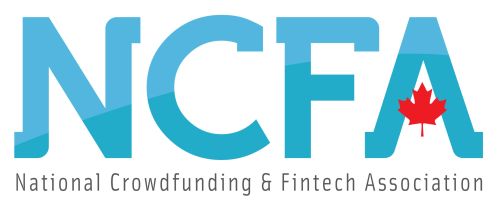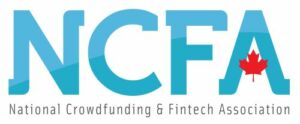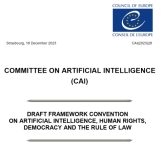Generative AI: A Primer On Canadian AI and IP
Borden Ladner Gervais LLP | Hunter Parsons and Vivian Cheng | Feb 27, 2023

Image: Unsplash/DeepMind
With AI being used for everything from fanciful selfies to commercial book covers, the question of who owns AI generated art is becoming increasingly important.
- Generative AI refers to machine learning algorithms that create new content, such as text, images, video, and audio, based on existing data. Text-to-image generative AI software, such as OpenAI’s DALL-E-2, creates images based on text prompts provided by the user. DALL-E-2 utilizes vast amounts of data scraped from the internet to train the algorithm, which may include copyrighted material.
- Ownership of AI generated images, including enforceability, is subject to ongoing debate.
- Canada’s Artificial Intelligence and Data Act (AIDA) is proposed legislation with significant business impacts that would regulate some aspects of AI that relate to international and interprovincial trade and commerce. While generative AI seems to meet AIDA’s definition of artificial intelligence, the proposed legislation does not address copyright concerning the commercial use of artistic works created using generative AI.
- The Copyright Act provides copyright owners the exclusive, legal right to produce, reproduce, sell or license, publish or perform an original work or a substantial part of it. The key word here is “original.” An important Supreme Court of Canada case defines an “original work” as a product of the creator’s “skill and judgment” that “must not be so trivial that it could be characterized as a purely mechanical exercise.”
- Some members of the Canadian legal community have argued that providing text prompts to a generative AI program is a “purely mechanical” process that does not result in an original work as defined by the Supreme Court.
- However, anyone who has spent time plugging text inputs into DALL-E 2 will quickly discover that there is a learned skill involved in the formulation of text prompts to create beautiful (or beautifully bizarre) AI generated art.
See: Landmark Legal NFT Decision Favours Intellectual Property Owners
- Potential exception 1: Temporary reproductions for technological processes: The temporary reproductions exception aims to facilitate technological processes. The exception provides that temporary reproductions do not constitute copyright infringement if:
- The reproduction forms an essential part of a technological process.
- The reproduction’s only purpose is to facilitate a use that is not otherwise an infringement of copyright.
- The reproduction exists only for the duration of the technological process.
- Potential exception 2: Fair dealing
- The fair dealing exception is a general right of all potential users of a copyrighted work. Fair dealing permits the use of copyrighted material for specific purposes — research, private study, education, satire, parody, criticism, review or news reporting — so long as the use is “fair.”
See: Generative AI Seed Deals Explode Despite Concerns
- Take away: Businesses that use generative AI-created works for commercial purposes should be aware that such works may risk violating copyright held by others, and that their AI generated works may not receive copyright protection in the same way as art created using legacy technology. They should pay close attention to the terms and conditions that apply to the generative AI software they use, since some software providers may seek to shift liability for copyright infringement to users of the program.
Continue to the full article –> here
 The National Crowdfunding & Fintech Association (NCFA Canada) is a financial innovation ecosystem that provides education, market intelligence, industry stewardship, networking and funding opportunities and services to thousands of community members and works closely with industry, government, partners and affiliates to create a vibrant and innovative fintech and funding industry in Canada. Decentralized and distributed, NCFA is engaged with global stakeholders and helps incubate projects and investment in fintech, alternative finance, crowdfunding, peer-to-peer finance, payments, digital assets and tokens, blockchain, cryptocurrency, regtech, and insurtech sectors. Join Canada’s Fintech & Funding Community today FREE! Or become a contributing member and get perks. For more information, please visit: www.ncfacanada.org
The National Crowdfunding & Fintech Association (NCFA Canada) is a financial innovation ecosystem that provides education, market intelligence, industry stewardship, networking and funding opportunities and services to thousands of community members and works closely with industry, government, partners and affiliates to create a vibrant and innovative fintech and funding industry in Canada. Decentralized and distributed, NCFA is engaged with global stakeholders and helps incubate projects and investment in fintech, alternative finance, crowdfunding, peer-to-peer finance, payments, digital assets and tokens, blockchain, cryptocurrency, regtech, and insurtech sectors. Join Canada’s Fintech & Funding Community today FREE! Or become a contributing member and get perks. For more information, please visit: www.ncfacanada.org
Related Posts
- SEO Powered Content & PR Distribution. Get Amplified Today.
- Platoblockchain. Web3 Metaverse Intelligence. Knowledge Amplified. Access Here.
- Source: https://ncfacanada.org/generative-ai-a-primer-on-canadian-ai-and-ip/
- 1
- 2018
- 39
- a
- Act
- address
- affiliates
- AI
- aida
- aims
- algorithm
- All
- alternative
- amounts
- and
- anyone
- Apply
- Art
- article
- artificial
- artificial intelligence
- artistic
- aspects
- Assets
- attention
- audio
- based
- beautiful
- beautifully
- become
- becoming
- being
- blockchain
- book
- business
- businesses
- cache
- Canada
- Canadian
- characterized
- Cheng
- Close
- closely
- Commerce
- commercial
- community
- Concerns
- conditions
- constitute
- copyright
- copyright infringement
- could
- Court
- covers
- create
- created
- creates
- creator
- criticism
- Crowdfunding
- cryptocurrency
- dall-e
- data
- dealing
- Deals
- debate
- decentralized
- decision
- DeepMind
- defined
- Defines
- Despite
- digital
- Digital Assets
- discover
- distributed
- ecosystem
- Education
- engaged
- entry
- essential
- Ether (ETH)
- everything
- exception
- Exclusive
- Exercise
- existing
- exists
- facilitate
- fair
- finance
- financial
- fintech
- forms
- formulation
- from
- full
- funding
- General
- generated
- generative
- Generative AI
- get
- Global
- Government
- Held
- helps
- here
- HTML
- HTTPS
- image
- images
- important
- in
- include
- Including
- increasingly
- industry
- information
- infringement
- Innovation
- innovative
- Insurtech
- intellectual
- intellectual property
- Intelligence
- International
- Internet
- investment
- IP
- IT
- Jan
- Justice
- landmark
- learning
- Legacy
- Legal
- Legislation
- liability
- License
- Long
- Market
- material
- max-width
- mechanical
- Meet
- member
- Members
- more
- networking
- New
- news
- NFT
- ongoing
- OpenAI
- opportunities
- original
- Others
- otherwise
- owners
- owns
- Parody
- part
- partners
- Pay
- payments
- peer to peer
- perform
- perks
- plato
- Plato Data Intelligence
- PlatoData
- please
- potential
- primer
- private
- process
- processes
- produce
- Product
- Program
- projects
- property
- proposed
- provided
- providers
- provides
- providing
- publish
- purely
- purpose
- purposes
- question
- quickly
- receive
- refers
- Regtech
- Regulate
- Reporting
- reproduction
- research
- result
- review
- same
- satire
- Sectors
- seed
- Seek
- seems
- sell
- Services
- shift
- should
- since
- skill
- So
- Software
- some
- specific
- spent
- stakeholders
- Stewardship
- Study
- subject
- substantial
- such
- Supreme
- Supreme Court
- technological
- Technology
- temporary
- terms
- terms and conditions
- The
- their
- thousands
- time
- Title
- to
- today
- Tokens
- trade
- Train
- Unsplash
- use
- User
- users
- utilizes
- Vast
- vibrant
- Video
- Violating
- while
- WHO
- will
- Word
- Work
- works
- would
- zephyrnet











